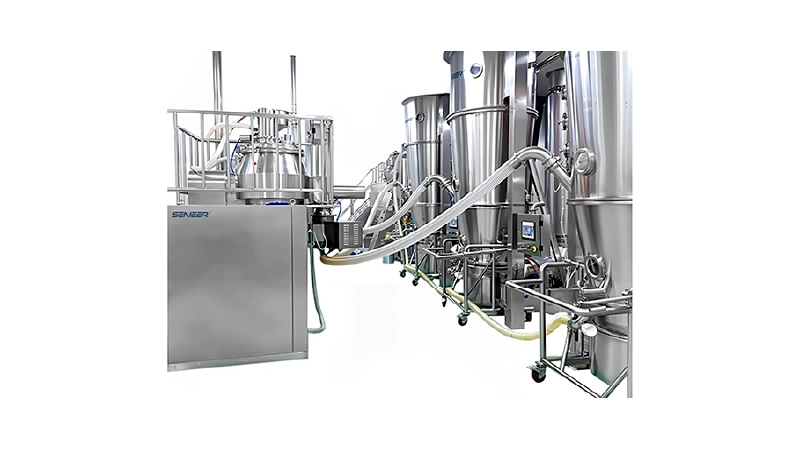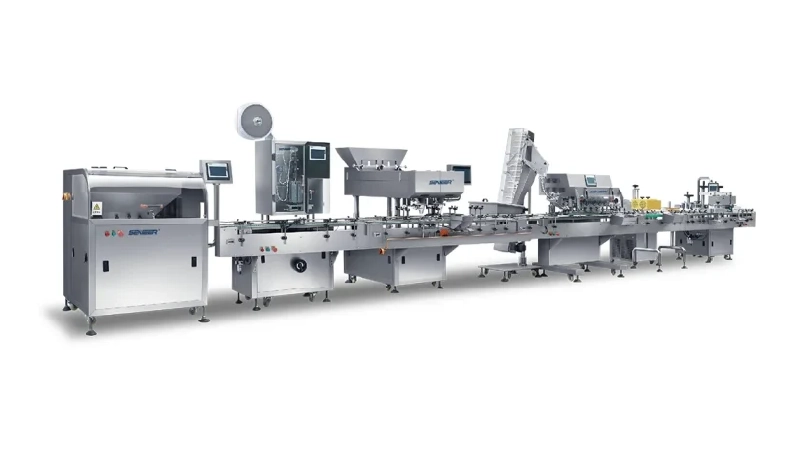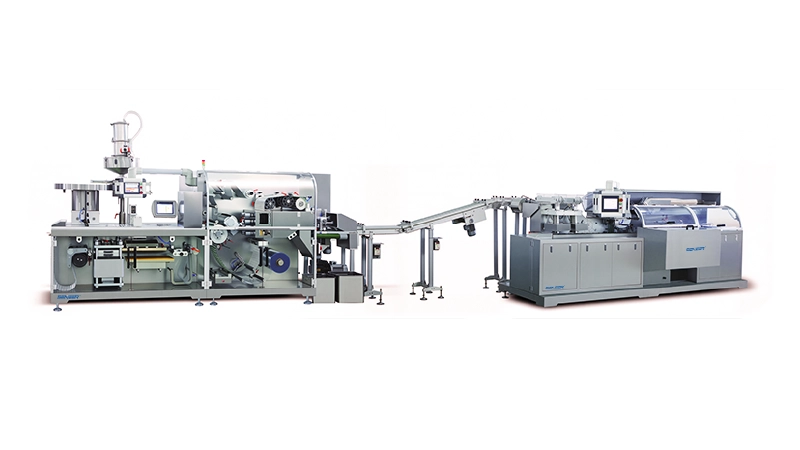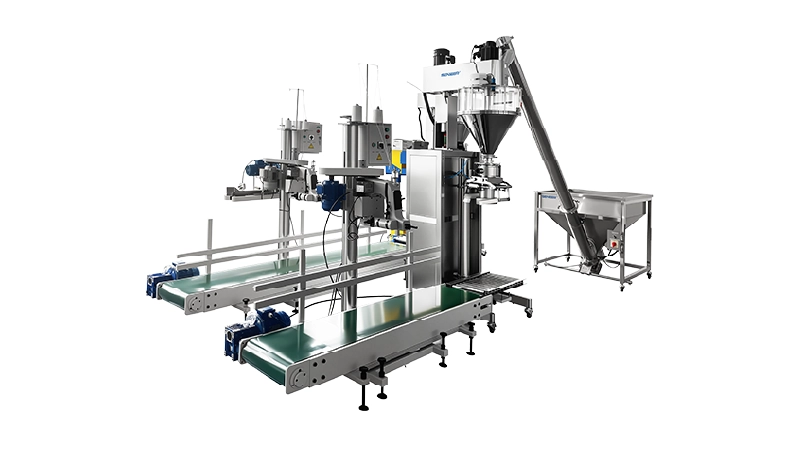The pharmaceutical industry is facing increased pressure to improve production efficiency and reduce costs while maintaining high levels of quality and safety. One way to achieve this is through the use of advanced machinery in pharmaceutical production. In this blog, we will explore how advanced machinery can improve pharmaceutical production efficiency.
Advanced machinery in pharmaceutical production can include a range of equipment, such as automated filling and packaging machines, high-speed tablet presses, and continuous manufacturing systems. These machines offer a number of advantages over traditional production methods, including faster production times, reduced waste, and improved quality control.
One of the most significant benefits of advanced machinery in pharmaceutical production is increased speed and efficiency. Automated filling and packaging machines can process large quantities of medication quickly and accurately, reducing the need for manual labor and minimizing the risk of errors. High-speed tablet presses can produce large quantities of tablets in a short amount of time, allowing pharmaceutical companies to meet demand more quickly and efficiently.
Another advantage of advanced machinery in pharmaceutical production is the ability to reduce waste. Continuous manufacturing systems, for example, use a closed-loop system that recycles materials and minimizes waste. This not only reduces the cost of raw materials but also contributes to a more sustainable production process.
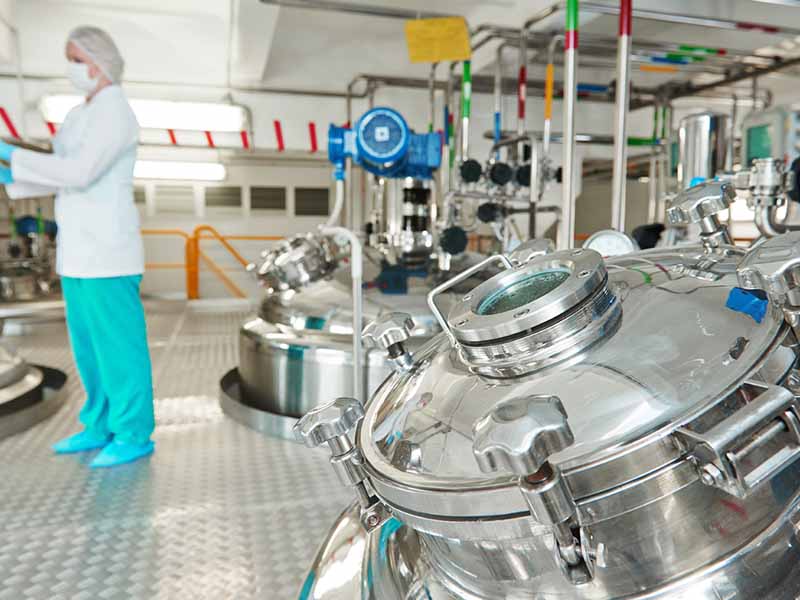
In addition to increased speed and efficiency and reduced waste, advanced machinery can also improve quality control in pharmaceutical production. Automated machines can perform tasks with a high degree of accuracy, reducing the risk of human error and ensuring that medications are produced consistently to a high standard.
While the initial cost of investing in advanced machinery may be high, the long-term benefits can outweigh the costs. By improving production efficiency, pharmaceutical companies can increase profitability and competitiveness, which is particularly important in a market where drug development and production costs are rising.
The use of advanced machinery in pharmaceutical production can significantly improve efficiency, reduce waste, and improve quality control. While the initial investment may be significant, the long-term benefits can be substantial, making it a worthwhile investment for pharmaceutical companies looking to remain competitive in a rapidly evolving market. By staying up-to-date on the latest technological advancements, pharmaceutical companies can continue to improve production efficiency and meet the growing demand for quality medications.
One area where advanced machinery can also make a significant impact is in the area of personalized medicine. With the increased demand for tailored treatments that cater to individual patients, the use of advanced machinery such as 3D printers can help produce personalized medications on a small scale.
Another benefit of advanced machinery in pharmaceutical production is the ability to meet regulatory requirements more effectively. With the increased scrutiny on pharmaceutical manufacturing processes and the need for compliance with regulatory bodies, advanced machinery can help ensure that products are produced in a controlled and consistent manner, minimizing the risk of regulatory issues.
However, it is important to note that the use of advanced machinery in pharmaceutical production does not come without challenges. One of the biggest challenges is the need for skilled operators who can operate and maintain the machines effectively. This requires specialized training and expertise, which can be a barrier for some companies.
Another challenge is the need for significant investment in research and development to ensure that the machines are effective and meet regulatory requirements. This requires a significant investment of time and resources, which may not be feasible for all companies.
In conclusion, the use of advanced machinery in pharmaceutical production offers a range of benefits that can significantly improve efficiency, reduce waste, and improve quality control. While there are challenges associated with the use of these machines, the long-term benefits can outweigh the costs, making it a worthwhile investment for pharmaceutical companies. With the continued development of new technologies and advancements in the field, the use of advanced machinery in pharmaceutical production is likely to become increasingly prevalent in the years to come.
In addition to the challenges mentioned earlier, the use of advanced machinery in pharmaceutical production also requires a significant investment in infrastructure. This includes the need for specialized facilities to house the machines and provide a controlled environment for the production process.
Furthermore, the implementation of advanced machinery in pharmaceutical production requires careful planning and integration with existing production processes. This can be a complex and time-consuming process that requires a thorough understanding of the company’s operations and production requirements.
Despite these challenges, the benefits of using advanced machinery in pharmaceutical production are clear. Improved production efficiency, reduced waste, and improved quality control are just some of the benefits that can help pharmaceutical companies remain competitive in a challenging market.
Moreover, with the continued advancements in technology, the use of advanced machinery in pharmaceutical production is likely to become even more prevalent in the future. This could lead to further improvements in production efficiency and quality control, as well as new opportunities for personalized medicine and drug development.
In conclusion, the use of advanced machinery in pharmaceutical production offers significant benefits for companies looking to improve efficiency, reduce costs, and maintain high levels of quality control. While there are challenges associated with the implementation of these machines, the long-term benefits make it a worthwhile investment for companies in the pharmaceutical industry. As the industry continues to evolve, the use of advanced machinery is likely to become increasingly important in maintaining competitiveness and meeting the growing demand for quality medications.






